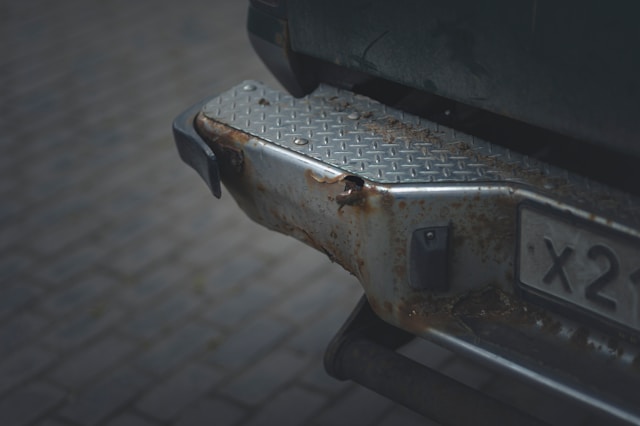If You Free a Bird, It Probably Won’t Come Back to You
Celina was the first to arrive at the lake house. Gael would join her later that afternoon for their monthly rendezvous. They both lived in the city, but to be discreet, they met at his family’s summer house.
She opened the kitchen window, and a crisp breeze rushed in. Fall painted the leaves of the Sparrow Island trees gold, emerald, and rust. The sparrows had made a home for themselves in the oak leaves, their song a charming respite from the quiet lull of island life. House sparrows were beloved by Aphrodite, who considered the birds lustful creatures. Celina spared a moment of sympathy for the Greek goddess, tangled up in her own string of complicated men.
Searching for Gael’s rough scent, Celina made the bed with flannel sheets. Flashes of their dirty tumbles colored her cheeks. That bed was also where they’d discussed their future. The timing hadn’t been right for Gael to leave his wife, but he’d promised to divorce soon.
A text from Gael popped up on her phone: Babe, had to work this morning. Go to the market without me. See you soon. xo
The farmer’s market was their ritual. Hand-in-hand, like an old married couple, sampling the freshly baked blueberry muffins and tart peaches. Today, she bought a butternut squash shaped like a woman’s body. In its smooth, undulating curves, she felt Gael’s hand on her bare hip.
Last month, she’d shopped alone because of Gael’s burdensome workload. Celina savored her solo market jaunts—lavender-scented soap, lemon cake, salted caramel tea. Dream catchers dangled from the rafters. She’d never noticed the protective talisman before, offering to rid her of harmful dreams.
Back at the house, the cool afternoon breeze sharpened to an evening chill, and Celina curled up under a soft handmade throw. Likely a recent addition from Gael’s wife, a talented interior designer. The blanket hadn’t been there last month. Gael must have brought his wife to the lake house during the intermission between their clandestine encounters. Or maybe she was just being paranoid.
Celina folded the throw neatly, putting it aside. According to Gael, he and his wife had grown apart years ago, and his kids were in college, but Celina still felt guilty thinking about them. She hated all the lies, but Gael refused to make a choice either way. And when Celina offered to end things, he laid the guilt on thick. “I risked everything to be with you,” he’d say. “You owe me more time.”
Gael texted again: Running late, family stuff, gonna catch 6 o’clock ferry. Be there by 7, latest.
She slipped on a wool sweater for a walk down to the lake. Celina passed by the discreet inlet where she and Gael had made love for the first time. They’d tasted each other, lit a bonfire on the beach, burned the tops of marshmallows like school kids. His taste was fresh on her lips, his touch tattooed on her skin. Celina wasn’t in love with Gael. She was in love with memories.
Two summers ago, Gael had lived on the island while his wife was in design school. Celina had rented the cottage next door to write a poetry book. They’d met in passing, and soon became lovers. Celina spent a magical summer masquerading as Gael’s wife, her writing forgotten. Memories are worse than paper cuts—was the last line of poetry she’d written a year ago. Her youthful light had attracted a man in a dying relationship. She’d thought him her soulmate, but she didn’t think so anymore.
The sun, reluctant to descend, brushed the sky with a palette of colors. At the end of the jetty, Celina sat down. Things had been so different between her and Gael in the past. She’d arrive on weekends to find sweet-smelling daffodils—her favorite, adorning every vase in the house. They would sit on the jetty, fingers entwined, watching the sun fade into purples, pinks, and blues.
Another message from Gael lit up her phone: Hon, sorry. Utter chaos at home. Not gonna make it tonight. Will jump on the first morning ferry. Enjoy your evening.
Gael had given her a way out. She hadn’t been wholly aware she’d been looking for one until now. But he’d left the door to her birdcage unlocked for an instant.
Unable to tell her friends and family about her relationship, Celina felt isolated. She kept her weekends open for Gael, who always pled some family commitment. Gael never explicitly told her not to date other people, but when she did, he was moody and distant for weeks afterward. His hypocrisy had become tedious.
Logic dictated that if Gael left his wife, Celina would inherit a broken and dishonest man. She’d shoulder the blame for his family estrangement. Illogically, the thought of waking up alone to the sparrows’ song left her heart dull and aching. But she would get over Gael. Her bed was mostly empty, anyway.
Celina picked up her phone and texted Gael: Babe, don’t bother coming this weekend. I need my life to move forward, goodbye.
The sun dropped into the horizon as Celina locked the door to the lake house. Unlike the captive sparrows of old, she was free to leave the island. She checked her phone—five missed calls from Gael. She switched it off. Time to return to her first love, poetry. One day, she’d return, but not until she’d written poems which rivaled the songs of the sparrows.
Sabina Malik is an author of short fiction. Originally born in the States and raised in Canada, she leads a nomadic life, writing stories in airports, buses, and hotel rooms around the world. Her most recent fiction credits include Dark Horses and Flash Fiction Magazine. You can find her on Instagram @lazyfiction and linktr.ee/lazyfiction.



